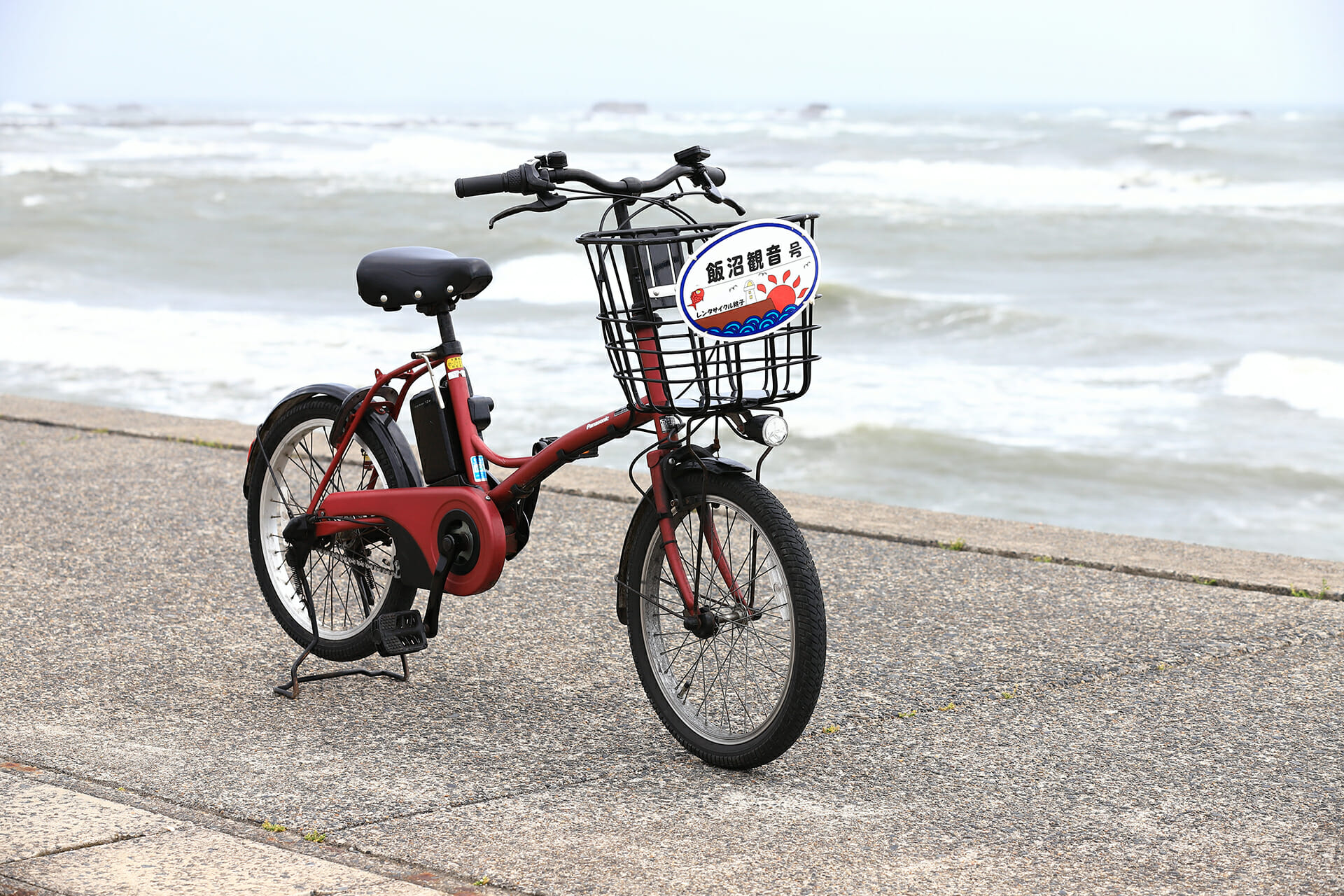
Things to Do | Visit Chiba | Latest update:2024/12/27
Choshi City occupies the northeastern corner of Chiba Prefecture’s Pacific coast, and has long been one of Japan’s major fishing port cities. In fact, the annual fish catch that crosses through Choshi Fishing Port has ranked in the top-two in Japan for the last 13 years in a row (2011-2023). Choshi has also thrived as a hub for commercial soy sauce production, a history that dates back to Japan’s Edo period and continues today as two of Japan’s major soy sauce producers are headquartered here.
Rental cycles are a perfect way to get a taste of the charming scenery on offer here, such as the quaint, old-fashioned streets and the grand ocean views. Rental cycles are available at the Tourist Information Center outside the entrance to JR Choshi Station, just follow the “Rent-a-Cycle” signs to get there. The bikes can also be returned at different locations around the city, so you have the option to take your return trip back to Choshi Station by train. These bikes also come equipped with electric assistance mechanisms, allowing you to cruise and enjoy the scenery without having to exert too much effort. For information about rental bike availability, fees, and drop-off options, please inquire at the Tourist Information Center outside the entrance to JR Choshi Station.
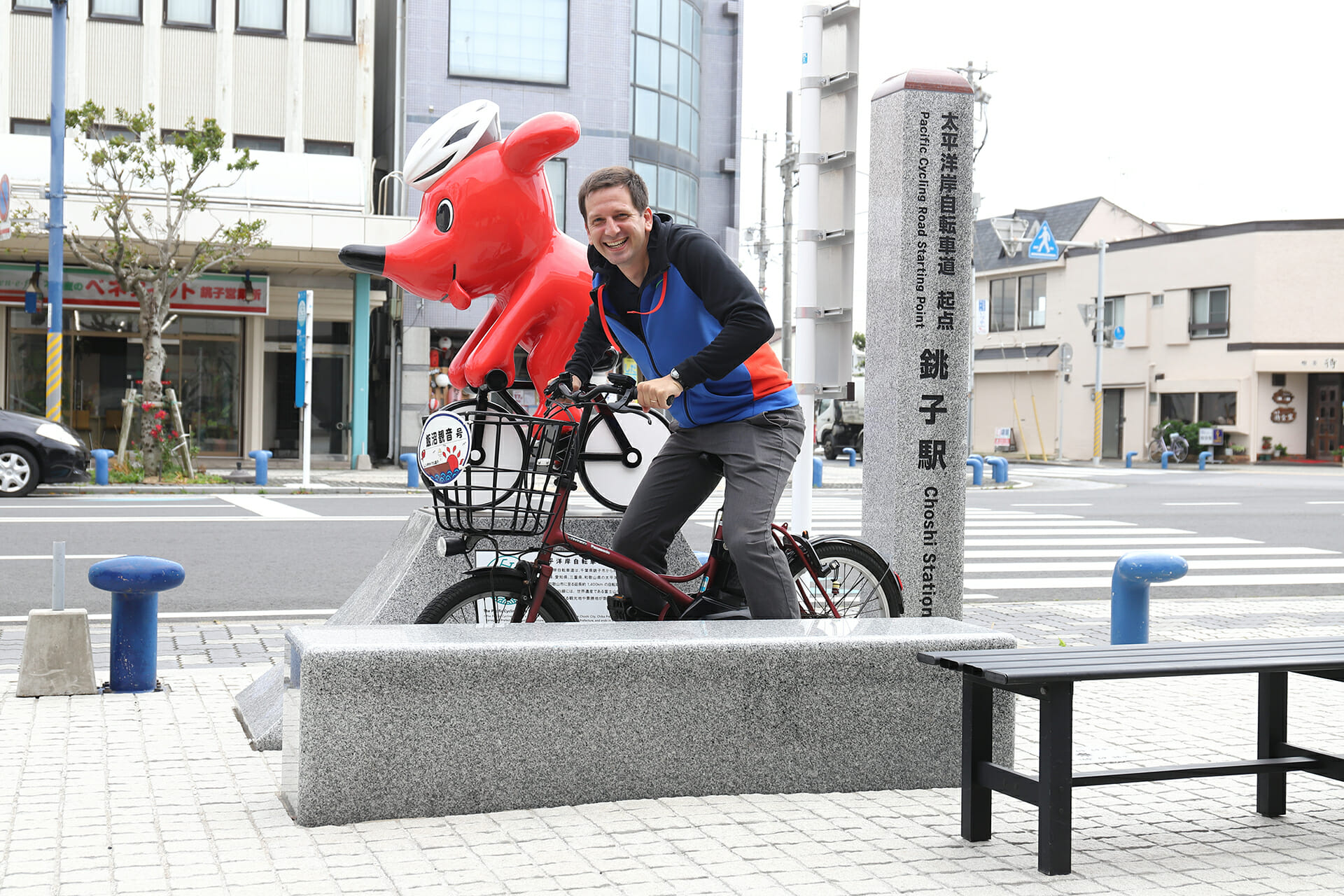
Located across from JR Choshi Station is a monument to the Pacific Cycling Road, a 1,400km route that runs from Choshi to Wakayama City in western Japan. Before you set out on your ride, stop and pose for a picture with Chiba-kun, Chiba Prefecture’s official mascot, who sits poised on his bike next to the monument. From there, you can follow the blue arrows painted on the road to follow the route for yourself.
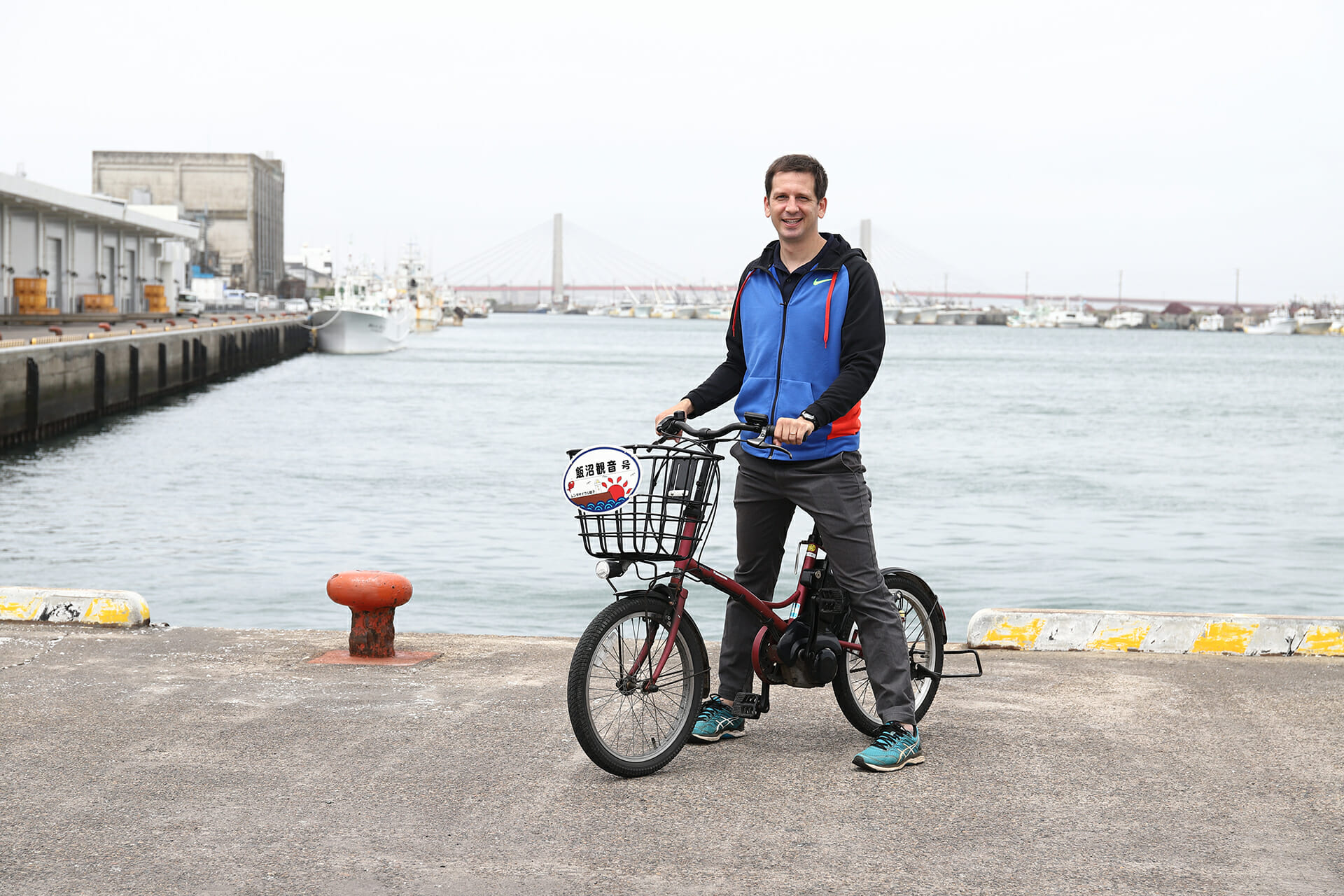
Choshi City is located where the Tone River, an historically major waterway, empties into the Pacific Ocean. Just off the coast, the warm Kuroshio Current from the south meets the cold Oyashio Current from the north, creating a bountiful fishery that has sustained this area economically, and has helped feed Greater Tokyo more broadly, for over 400 years. Choshi Fishing Port is located along the Tone River’s banks, and the riverside is a great place to take in the atmosphere of one of Japan’s most influential fishing harbors. From here you can also view the Choshi-ohashi Bridge, which measures 1,500 meters in length and spans the Tone River, connecting Chiba Prefecture to its northern neighbor Ibaraki Prefecture.
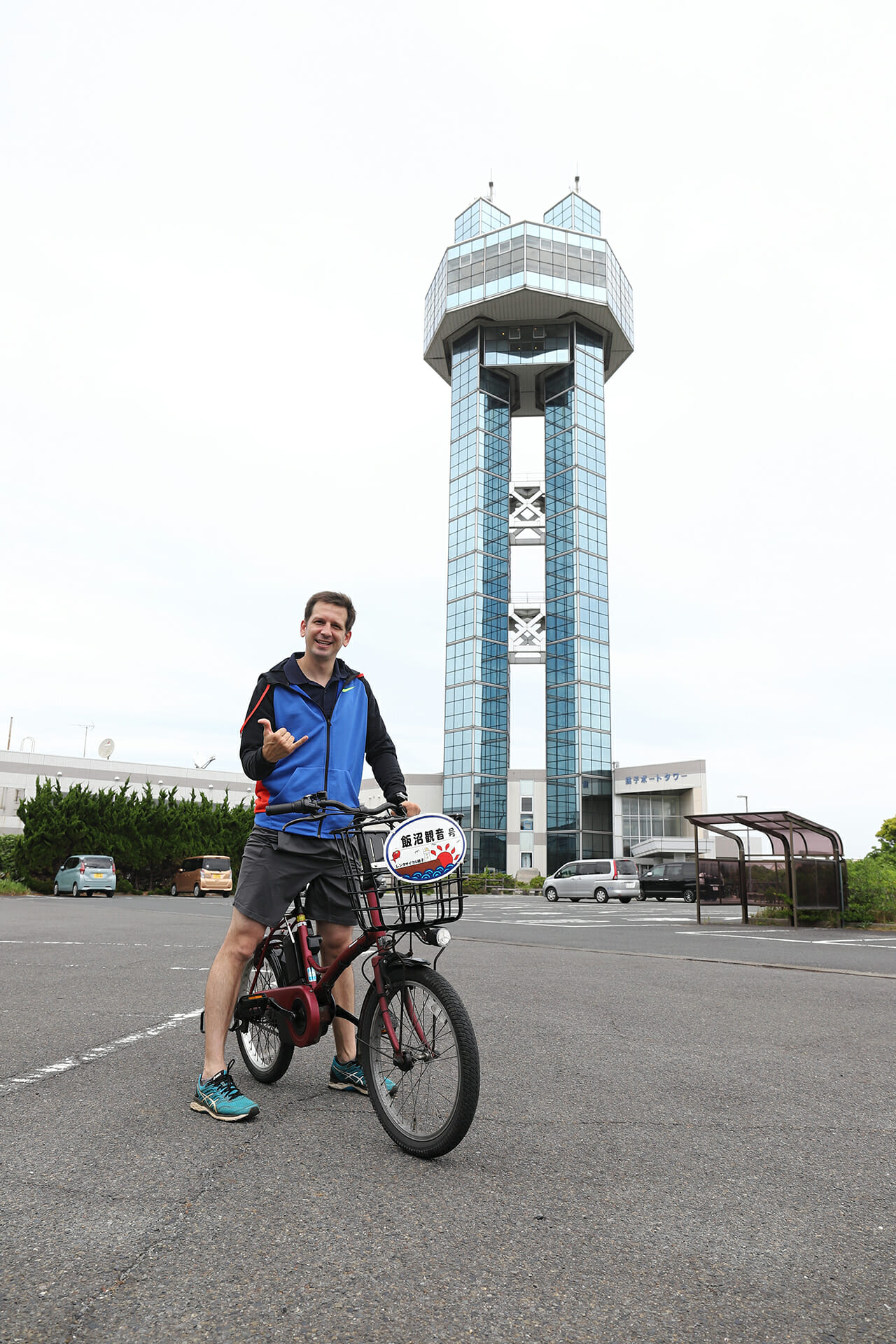
Standing at the mouth of the river, and just a block from the cycling route, is Choshi Port Tower, which offers a view looking down at the whole port area and beyond. To see this view for yourself just take the quick elevator ride from the tower’s lobby to its top floor. The tower is located next to Wosse 21, a direct-sale fish market which also has restaurants where you can try fresh seafood that comes straight from Choshi Fishing Port. Take the pedestrian bridge from the tower’s lobby to access Wosse 21.
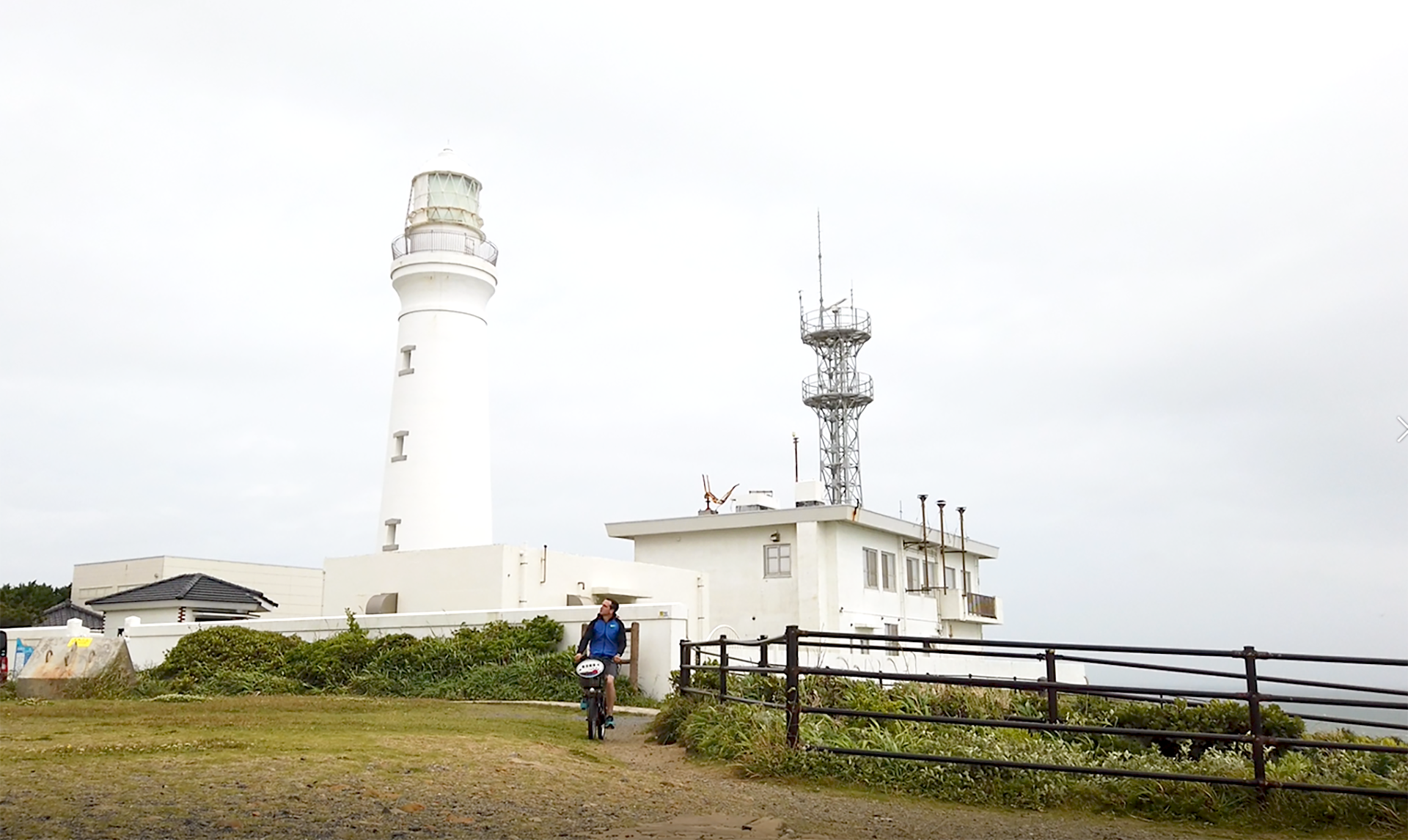
By making your way back to the cycling route from the riverfront area, you can then begin to explore Choshi’s Pacific coastline. After a ride along a seaside park, you’ll find yourself at Cape Inubo, home of the Inubosaki Lighthouse. This Western style lighthouse was constructed in 1874 by English architect Richard Henry Brunton, and is ranked on the IALA’s list of 100 lighthouses in the world that are historic and architectural monuments. At a height of 31.57 meters, it is the second tallest brick building currently standing in Japan. Climb the 99 steps of the corkscrew staircase for a panoramic view of the cape jutting out into the ocean. The “INUBOW TERASU TERRACE” market next to the lighthouse is another great place to stop for a meal and pick up some souvenirs.
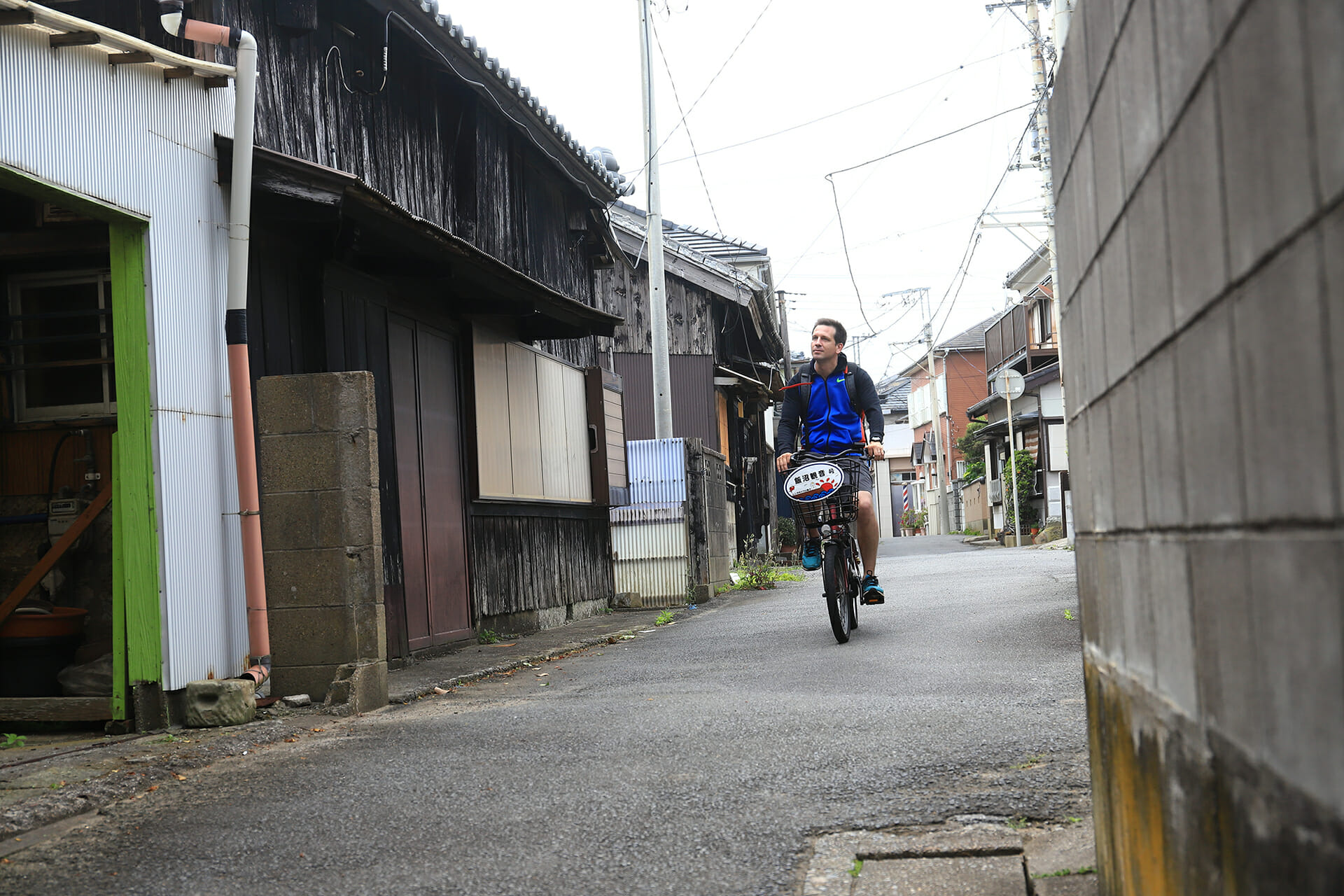
Just south of Cape Inubo, the blue arrows that mark the cycling road diverge into two paths, with one course bearing left toward the ocean. Follow that route to tour the port district of Tokawa. Although it isn’t geared toward tourists like the neighboring Cape Inubo area, Tokawa is a great place for those who like to set off on their own and explore. Over 350 years ago settlers from western Japan began relocating to Tokawa, attracted by the bountiful seas beyond its shores. The Tokawa townscape, or machinami, is known for its charm and character; almost no space goes unused along the narrow streets and alleys that occupy the hillsides that overlook the fishing port. The Tokawa area retains much of its traditional Japanese fishing village feel, and perhaps the landmark that best represents the area’s aesthetic is Tokawa Station, the last stop on the Choshi Electric Railway. The wooden station building was constructed in 1921, and an over 70-year-old restored “Deha 801” train car sits parked outside.
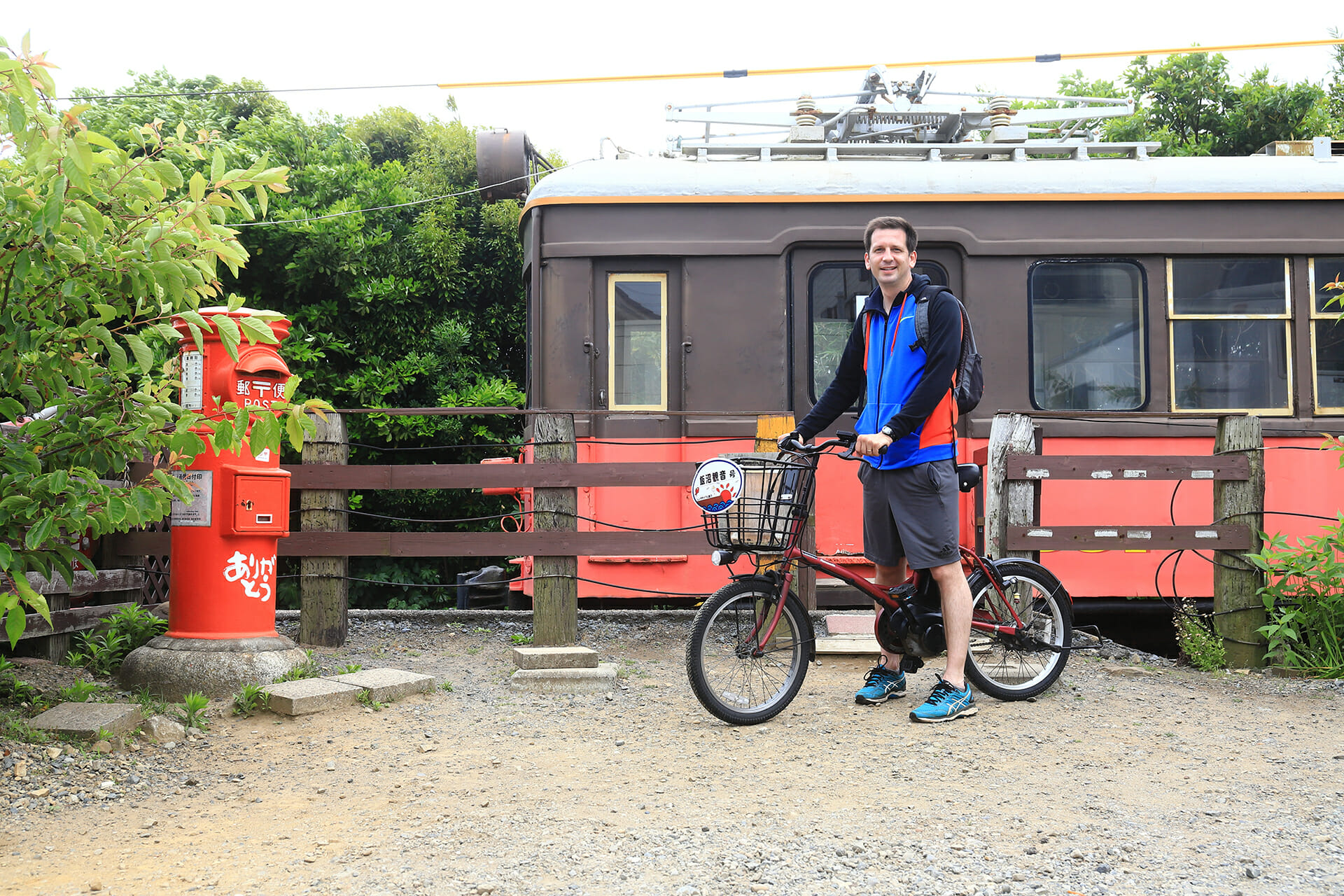
Tokawa was the last stop on our bike tour in Choshi, but the city has much more to explore! To learn more about the area, click on this article: visitchiba.jp/things/cruising-through-choshi/
6385-267 2-Chome, Kawaguchicho, Choshi
(By train: About a 20-minute walk from Kasagami-Kurohae Station on the Choshi Electric Railway.
By bus: Take the bus from JR Choshi Station bound for “Port Center” to the last stop.)
+81479249500
9576 Inubosaki, Choshi City
(About a ten-minute walk from Inubo Station on the Choshi Electric Railway.)